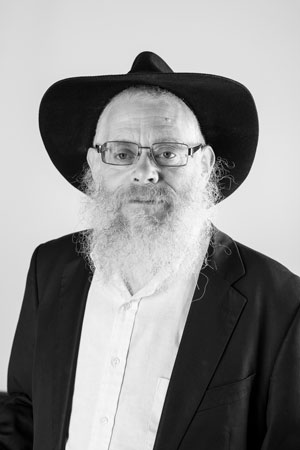An essay from Rabbi Shaul Yosef Leiter, director of Ascent
(for a free weekly email subscription, click here)
There must be something special about the quality of seeing that makes it the opening to this week’s Torah portion. “See,” G-d says, “I have given before you today a blessing and a curse.” We can understand the singular quality of seeing by contrasting it with hearing. The Talmud (Rosh Hashanna 26a) says that in Jewish law a witness can never become a judge. The reason is that since the witness actually saw the action in question, it is not possible for him to judge the defendant in a positive way. This is not the case for judges who only hear the depositions of witnesses. Even when a judge is convinced that the witnesses are telling the truth, nevertheless he still has the ability to see a broader picture and judge the defendant favorably.
From this aspect of Jewish law we can extrapolate both a positive as well as a limiting side to seeing. From the positive perspective, seeing has special power. A witness who sees something can help a court determine the innocence or guilt of a defendant through his testimony. On the limiting side, the actual act of seeing something so brings home to the essence of the person what was seen that it becomes impossible for him to change his perspective. If the witness is challenged, he will respond: But I saw it! Seeing is irrefutable.
The sense of hearing is completely different. Even when you hear about something from a completely reliable source, it is still possible to doubt or suspect that what the witness saw can be perceived in a different way.
Applying this understanding of “seeing” to the opening verse of this week’s Torah portion, we learn a lesson for our day to day service of G-d. Learning Torah and doing the commandments which G-d says, “I am putting before you today,” must be in a way of seeing. Hearing, or even believing, it is not enough. The truth of G-d’s communication with us must be indisputable, something that we are so completely unified with it, that it cannot be put aside. We must be able to see it, and therefore be convinced of its veracity. And with this clarity of vision, any changes or compromises are unthinkable. (From Likras Shabbos)
There was a chassid, an ardent follower of the Rebbe Rayatz (1880-1950), Rabbi Yitzchok Gurevitch, known as Itche the Masmid (“the diligent one”). As his name suggests, he was known for his exceptional diligence and strictness in following Jewish traditions. Once, as a young man, he took a long train trip, and his fellow Jewish passengers noticed that he was not eating or drinking anything. They started trying to persuade him to at least drink a cup of tea from the conductor’s samovar, because what possible question of kashrut (Jewish dietary law) could there be on hot water from an urn? They became quite relentless and he finally agreed to drink a cup of tea. Soon it was revealed that the conductor used the samovar to heat up, not only water, but also his (most certainly non-kosher) soup. Immediately Rabbi Itche went to the window of the train and threw up the tea that he had drunk. Sometime later, when Rabbi Itche was received for a personal audience with the Rebbe Rayatz, he told the Rebbe the whole story and asked for a tikun, a way to repair the damage that he had done. The Rebbe answered him that it is incredibly important to be careful to check and recheck before we put anything into our mouths. In the entire five books of the Torah there is only ONE case where the word “chazak,” “be strong,” is used in connection with being careful from something forbidden, and that is with the prohibitions around eating. (Also in this week’s portion [12/23].) This is the quality of vision, the ability to see the Torah, that makes us strong in observing all its details.
(Heard from HaRav Eliahu HaCohen Friedman)
Shabbat Shalom, Shaul
(for a free weekly email subscription, click here)


